The 2024 Summer Olympics in Paris is expected to attract 15 million visitors.
Put one of the world’s most visited destinations and the biggest sporting event in the world together and you’ll know that traveling to Paris during that three-week period could be overwhelming.
If you’re going for the games or to fulfill a lifelong dream of seeing the City of Lights—or both—we suggest doing a little bit more research as moving around the city could prove to be trickier than on normal days.
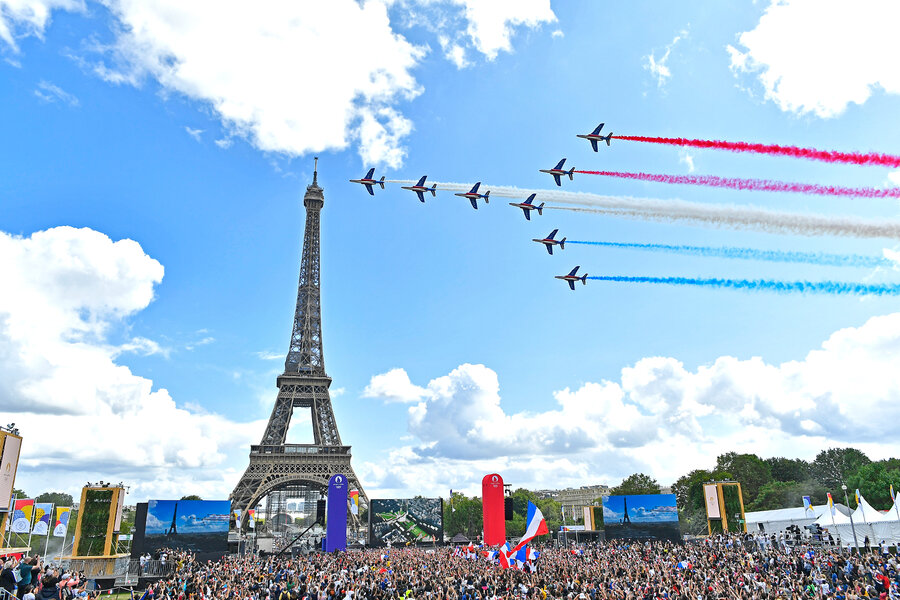


Photo by Getty Images
The Paris 2024 Olympics, which takes place from July 26 to August 11, is expected to attract a staggering 15 million visitors. Even surrounding areas are seeing a surge in interest, like Yvelines (which is home to the Palace of Versailles) in the western part of Île-de-France, whose views on Expedia are up a whopping 520%. With this huge number of travelers anticipated to crowd an already crowded city, you may want to be equipped with a few practical tips to help you have a pleasant sojourn.
No accommodations yet? Now’s probably the best time to book your room
The best dates to get a Paris deal this summer are the weeks leading up to the Games, when hotels are only 20 percent full, or the night of the Closing Ceremony, when occupancy is at its lowest during the Olympics, as per Conde Nast Traveler.
“While we are now just under 100 days to the Opening Ceremony, the timing can actually work in our favor,” says Nick Cunningham, an expert on traveling in France and Scott Dunn’s destination manager for Europe, as quoted in the same report. “When tickets and hotel accommodations first went on sale, pricing was exorbitant and many top hotels imposed a large minimum stay—some requiring 14 to 18 nights—but now many of our partners and other top properties have reduced those minimum stays to five to seven nights.”
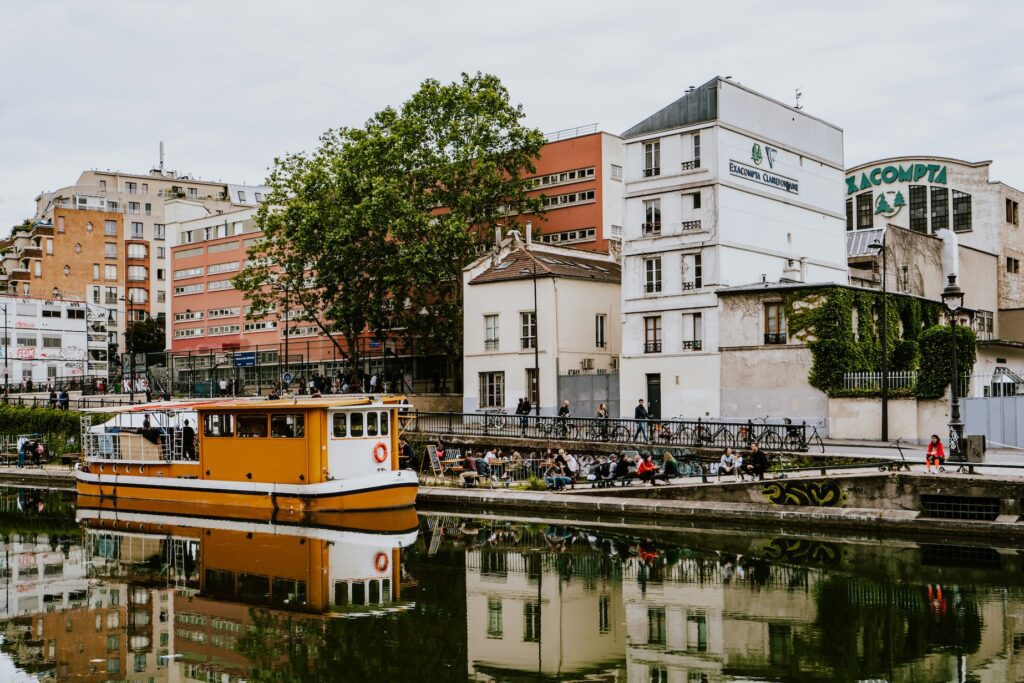


With the Olympics looming large during your visit, whether you like it or not, do note that the city’s largest stadium is in Saint-Denis—a 20-minute train ride from the city’s center and just outside of the 18th and 19th arrondissements. This isn’t an issue with Paris having some of the most extensive railways in any capital city in the world.
If you are looking forward to watching some of the sporting events while doing some sightseeing in a quieter part of the city, Conde Nast suggests booking an accommodation in the 10th arrondissement which is home to the charming Canal Saint-Martin, where you’ll be able to go on boat rides and dine at chic restaurants and bars.
First time in Paris? Then a room at the 1st and 2nd arrondissements, which is at the heart of the city and where many of its main attractions are, is highly recommended—but do expect throngs of people.
Going around during the Paris Olympics
Even though the Paris Olympics spans only a little over 20 days, the preparation and reverting to normal will take several weeks on either end. This means the whole shebang—temporary constructions, detours, and blocked streets, and the much higher volume of tourists—will definitely impact daily Parisian life from mid-July to the end of August.
As mentioned, it’s quite easy to go around Paris, especially on the metro (do watch out for pickpockets, though), but several major metro stations in the days leading to the Olympics will be closed, including the Concorde, Tuileries, and Champs-Elysées-Clemenceau. To help tourists go around the city despite these significant station closures, France’s Ministry of Transportation has put up a website detailing road restrictions and public transportation closures and delays, with the option to sign up for local flash alerts.
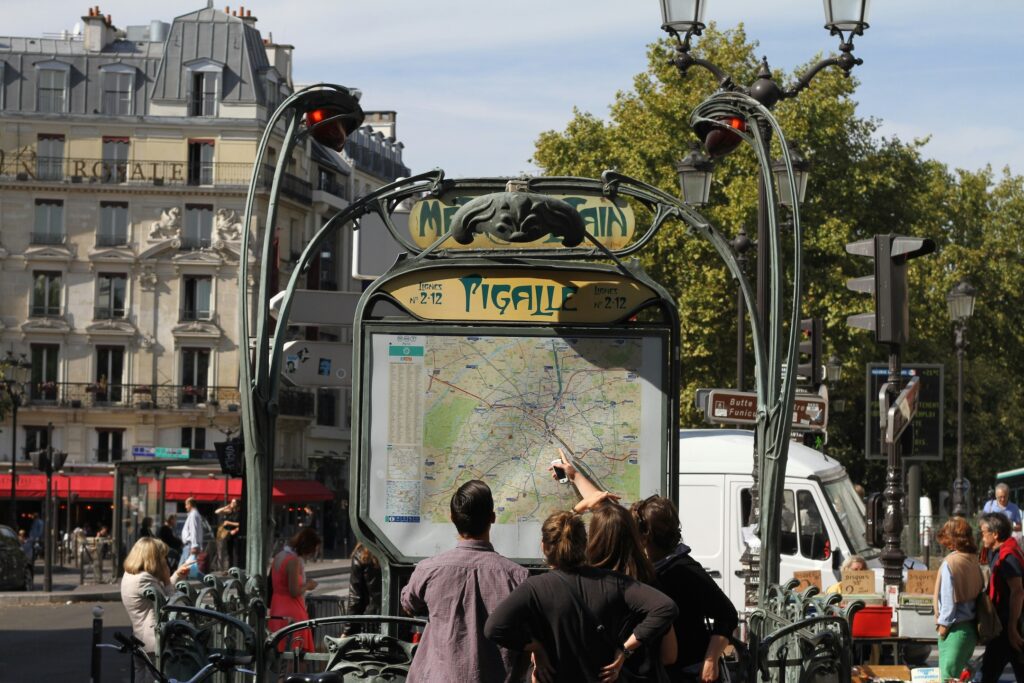


Photo by Romain Passelande from Unsplash
With Paris transforming iconic locations like the Champ-de-Mars, the Eiffel Tower, and Trocadéro into competition sites, these areas will also restrict traffic, bicycles, and pedestrians to make way for temporary spectator stands and makeshift stadiums. Conde Nast Traveler suggests transport apps like Citymapper that offer the latest traffic updates in real-time, plus Olympic-specific features.
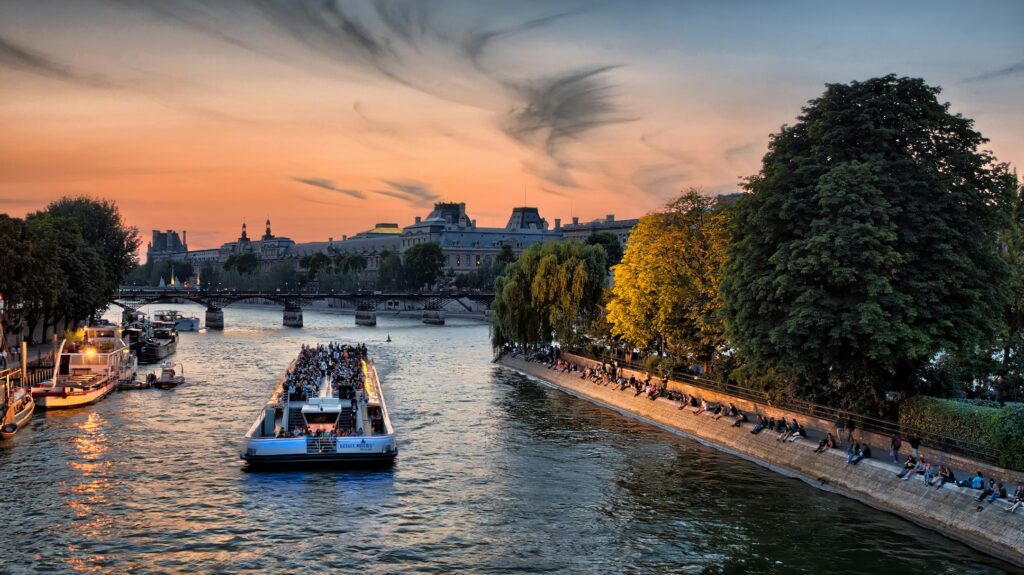


The tourist magnet that is Place de la Concorde has already halted traffic to prepare for sporting events like skateboarding, BMX, and 3×3 basketball, and bridges along the Seine like Pont d’léna, Pont de l’Alma, and Pont du Carrousel will close in early July.
If a cruise along the Seine is part of your bucket list, do note that you can still hop on a boat tour up until five days before the Opening Ceremony.
Keep ID and proof of your temporary residence address (e.g. hotel, Airbnb, etc.) on you at all times, as you may need to show it to get past specific restricted streets if officials block your route home.
Inflated fares—quelle horreur!
Heads up! Transport tickets in Paris will be doubled from July 20 to September 8, as reported on Forbes. If you’re thinking of arriving just in time for the Opening Ceremony, the report suggests arriving on July 18 or 19 so you can buy tickets or a weekly pass at the regular price to last you through the time you’re there.
A carnet of preloaded tickets (10 or 20) has no specific usage period, so you can buy in advance without having to worry about expiry dates. A weekly ticket, however, can only be bought the Friday before the week in question, so you’d have to buy it on the 19th and it would only last you to the 21st, as per Forbes.
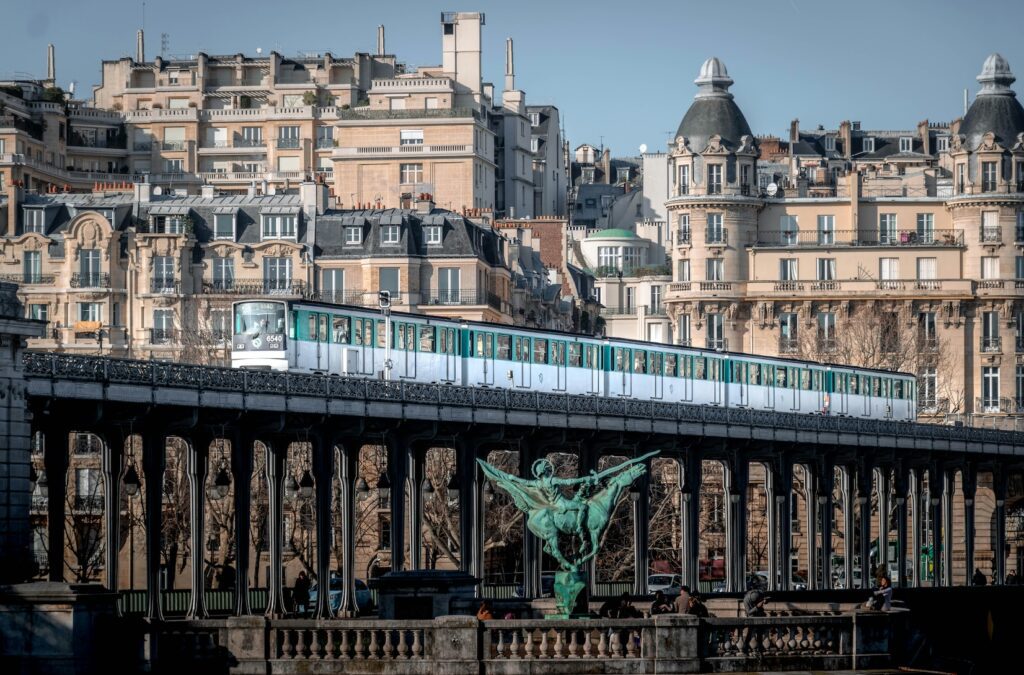


Carnets of tickets can also be bought online ahead of time. You can buy online before July 20 and pay today’s price instead of that of the inflation period. When purchasing, set the pick-up date for when you’re in the city—the catch is, there’s only one pick up location which could be inconvenient. They can also be delivered to your hotel for an additional 12 euros (this might be more expensive though).
A 60-km dedicated route for bikers
If you want to save up on transportation expenses when in Paris, which can be quite an expensive city, going around on a bike is a great alternative. What’s even better is that the city government mapped over 60 km of biking route that connects all Olympics venues, Forbes reports. Signages will be posted to help tourists use these routes to navigate between Olympic sites without having to use the metro or hopping on a bus.
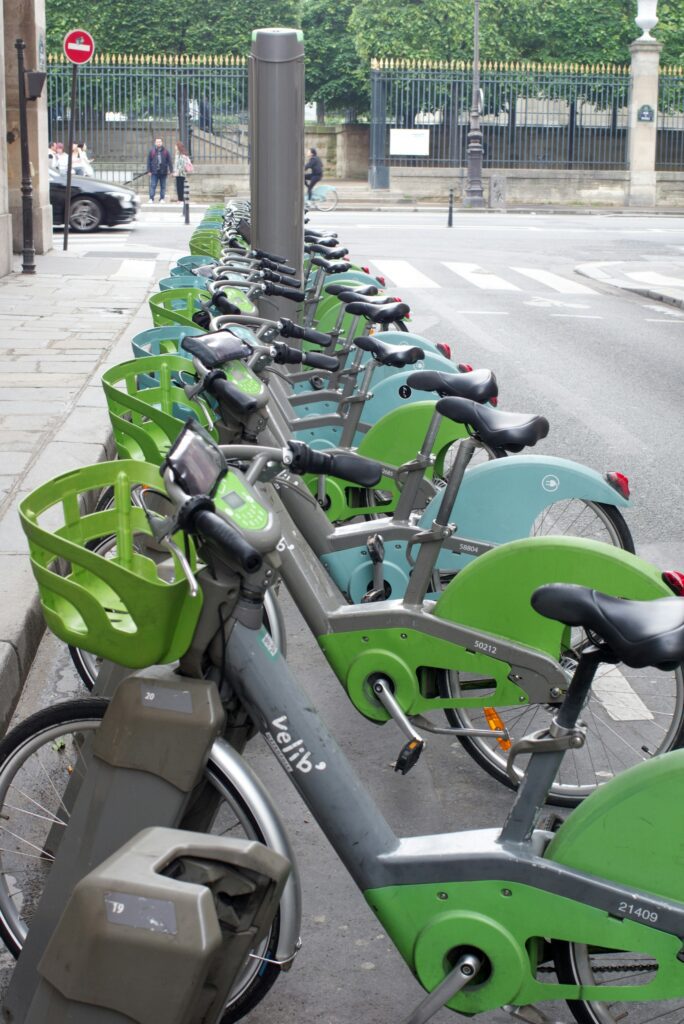


About 3,000 new Vélib bikes have been added to the city’s fleet and 1,300 new Vélib parking spaces have been installed near the Olympic sites to handle the surge in tourists. A three-day Vélib pass is 20 euros and includes unlimited hour-long rides on mechanical bikes, plus five 45-minute rides on electric bikes, before there’s an additional charge per half hour. This pass can be used to rent five bikes at the same time, making it a great option for families or groups.
Purchasing tickets to the games
The Paris Olympics 2024 tickets are available to purchase on a first come, first served basis on its official website.
The Olympic Committee is offering various packages, which include both competition tickets and travel arrangements, according to another article on Conde Nast Travel. Packages start at around $1000 USD for a 1-night stay at a 3-star hotel and one sporting event and could go as high as $30,000 USD for six nights at a 5-star hotel with access to six events.
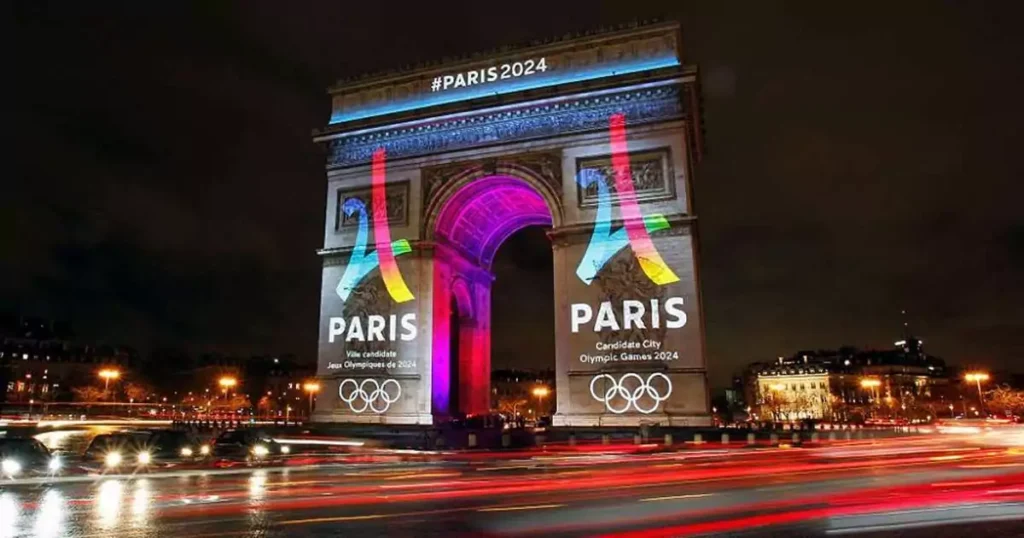


Hospitality Packages for VIP access are also available on the Olympics site. Starting at about $100 USD for lounge access at individual competitions, price tags could reach up to $10,000 USD if you want to get into the lounge at the Opening Ceremony, as well as a meet and greet with athletes before the Games begin.
Ticket registration is very strict at the Olympics, and all tickets must be purchased on the official ticketing website. As of writing, some sessions are already sold out. Visit the Olympics website for resale announcements.





